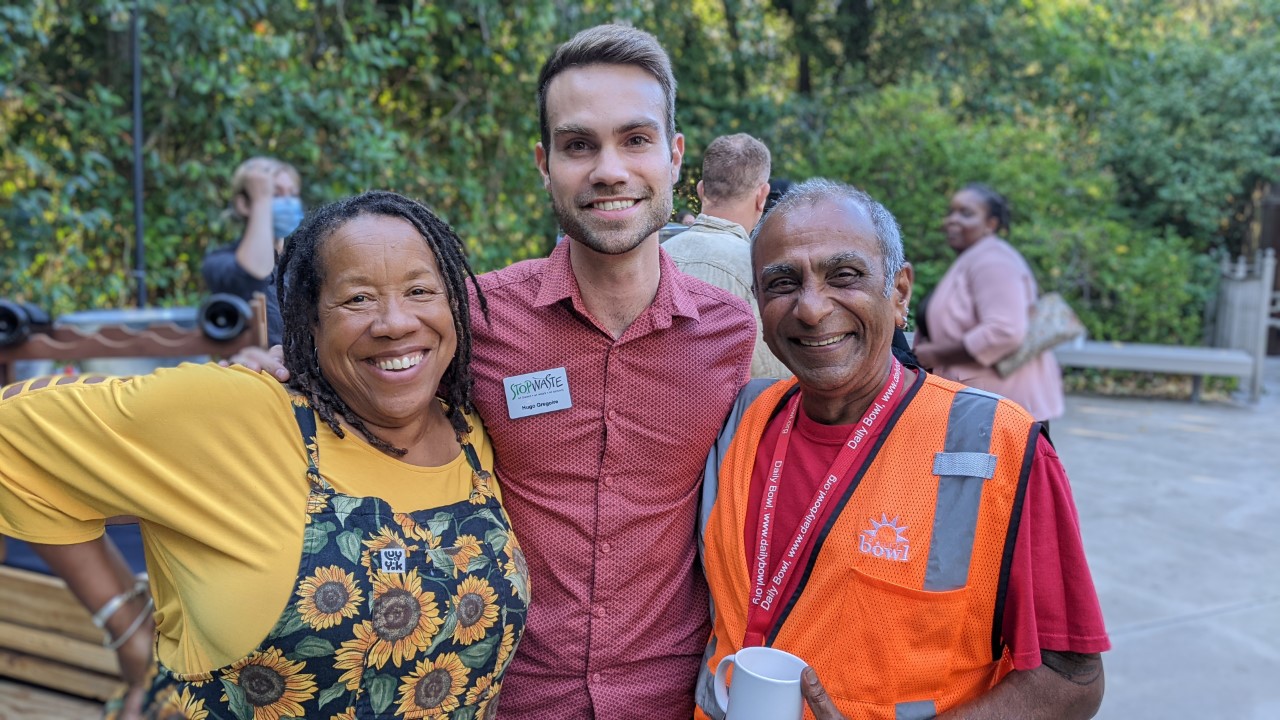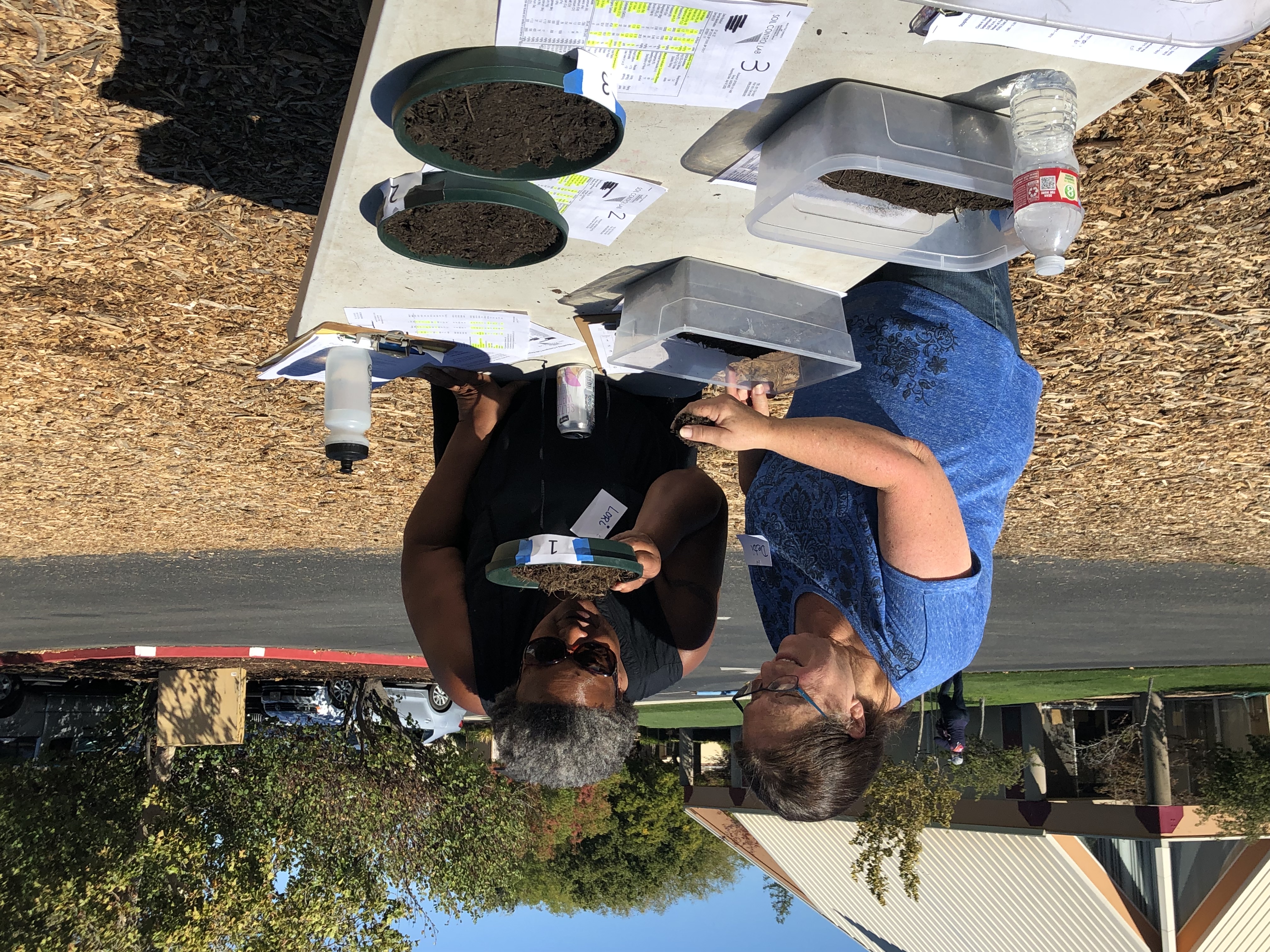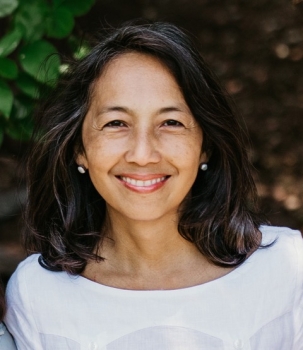Over the past decade, StopWaste has cultivated strong relationships with food recovery organizations across Alameda County, engaging in conversations around tackling food insecurity, building a resilient and inclusive regional food system, and more recently, planning for the needs of these organizations during the rule-making process for SB 1383. In 2021, StopWaste rallied these stakeholders to formalize the Alameda County Food Recovery Network (ACFRN), which serves as a space for over 45 food recovery organizations, city staff, and other groups like housing agencies and faith-based groups to connect and share resources on how to facilitate the recovery of edible surplus food and redirect it to community members seeking food assistance.
The ACFRN meets virtually on a monthly basis and addresses topics like best practices for weighing and tracking donations, edible food recovery capacity planning, volunteer needs, and written agreements with donors. In a recent meeting, stakeholders shared that they lacked the capacity to weigh recovered or rescued food, making it difficult to accurately keep track of total pounds of food recovered and streamline their operations. In response, StopWaste created a fund to provide scales to help track surplus food donations from commercial edible food generators. A total of 55 scales have since been purchased, enabling food recovery organizations to track recovered food and be prepared to comply with the SB 1383 recordkeeping mandate.
The ACFRN welcomes all organizations taking part in food recovery efforts in Alameda County to participate. You can also explore local food recovery organizations in your area below.




